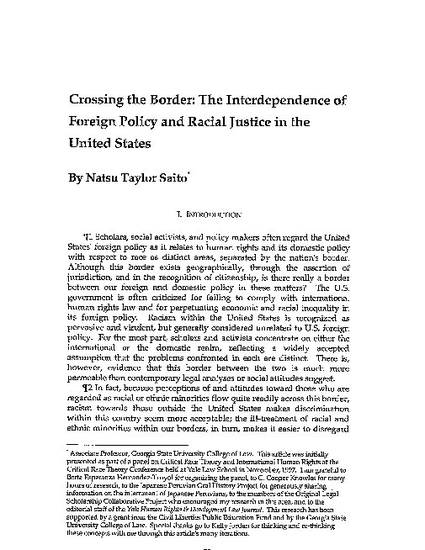
Article
Crossing the Border: The Interdependence of Foreign Policy and Racial Justice in the United States
Yale Human Rights and Development Journal
Disciplines
- Human Rights Law and
- Law
Abstract
Scholars, social activists, and policy makers often regard the United
States' foreign policy as it relates to human rights and its domestic policy
with respect to race as distinct areas, separated by the nation's border.
Although this border exists geographically, through the assertion of
jurisdiction, and in the recognition of citizenship, is there really a border
between our foreign and domestic policy in these matters? The U.S.
government is often criticized for failing to comply with international
human rights law and for perpetuating economic and racial inequality in
its foreign policy. Racism within the United States is recognized as
pervasive and virulent, but generally considered unrelated to U.S. foreign
policy. For the most part, scholars and activists concentrate on either the
international or the domestic realm, reflecting a widely accepted
assumption that the problems confronted in each are distinct. There is,
however, evidence that this border between the two is much more
permeable than contemporary legal analyses or social attitudes suggest.
Citation Information
Natsu Taylor Saito. "Crossing the Border: The Interdependence of Foreign Policy and Racial Justice in the United States" Available at: http://works.bepress.com/natsu_saito/6/
